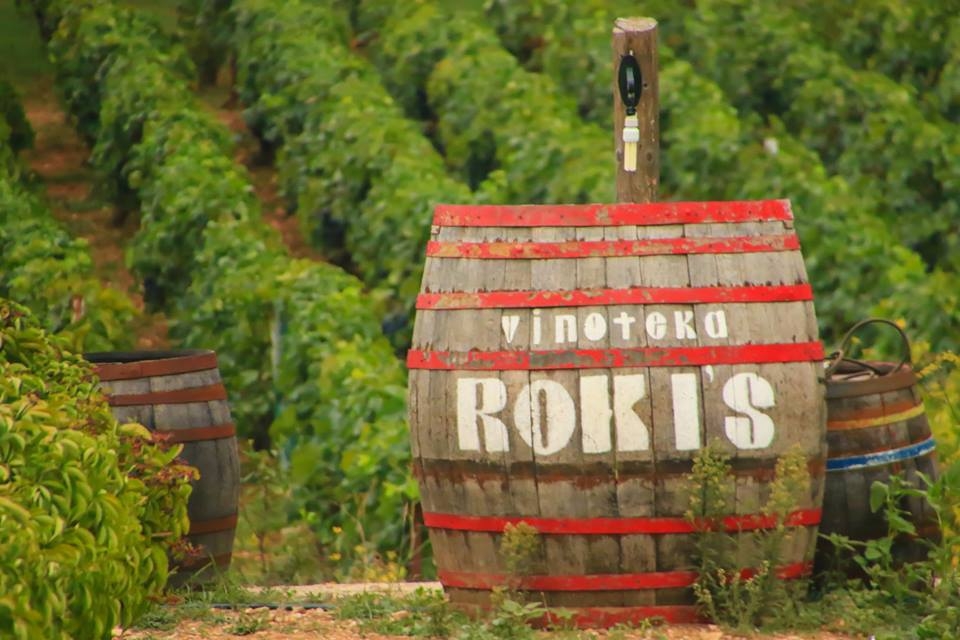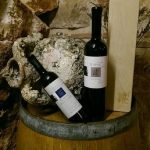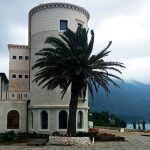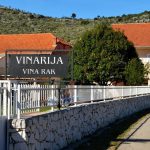
“It’s finally time to devote ourselves to wine more seriously. We’ve acquired a 600.000 Euro loan and are set to build a new cellar with a tasting room.”
Plisko valley, between Vis and Komiža, was once a synonym for the famous Vugava. Nikša Roki was a wine icon of a crumbling Yugoslavia, among the first to begin bottling wine. And then at the end of the 1990s the Roki family decided to go into catering as well. They made (and still do) spectacular peka dishes (baked under an iron bell), so much that the wine was pushed aside. This doesn’t mean their Vugava and Plavac are of low quality. In fact, not even close, the problem is the meat, fish and octopus under peka captivated everyone who came by accident or on purpose, so Konoba Roki’s, as many guests suggest on TripAdvisor, very quickly “went beyond more renowned restaurants and konobas” and became the most popular dining place on the entire island. Hence Plisko field became a synonym for good food.
Then island enthusiasts, gathered around Oliver Roki, Nikša’s son, decided to renew a tradition started 200 years ago on Vis, by founding and organising a – cricket club! Oliver would say: “It’s easy to form a football or similar club on an island, but cricket is exotic and not simple and you have to draw everyone in from the beginning.”
“Luckily I found 15 guys who were crazy enough to say ‘let’s play cricket on the island’ and here is the club functioning for 14 years, with English, Czech, New Zealand guests playing here, we’re better known in England than in Croatia,” Oliver says.
So Plisko field became a synonym for cricket.
During World War II in the vineyards of Plisko field American units lay a kilometre of steel plates to serve as a takeoff and landing strip, and thanks to that engineering feat over a thousand pilots and crew of 218 aircraft which touched down on Vis soil were saved. Plisko field thus became a synonym for life.
“The circle is complete, now that I feel more like a caterer than a winemaker and having taken over with my sister our father’s wine story, I can announce a return to Vugava, known in Vis dialect as Bugava. Honestly, I have no ambition to go beyond the island, which is a realistic reflection of the current market. Croatia is a market overloaded with wines and it’s hard to find a spot in any price range. You always depend on someone to promote you. That’s not for me. We’ve been modest with quantity lately – in 2014 there was barely any crop and 2015 was much more modest than usual. Now in mid-November, for sale in winter I have only 2.000 litres of Plavac Mali and 500 bottles of Bugava! With such quantities there can be no talk of breaking into the Croatian market. Maybe in several years, if things go in a different direction. We made some 2.5 wagons of wine this year, again a ridiculous quantity. I want to be a serious winemaker, my great grandfather made three wagons 90 years ago, in those conditions, and I make half a wagon less today! Compared to my great grandfather I shouldn’t be calling myself a winemaker,” says Oliver.
The Roki family, Oliver recalls, had a good life with the konoba, while wine production was left barely alive.
“The Vugava, renamed in mid-1990s into Bugava on our labels, was a matter of image. The konoba was meant to complement the wine story, but as tourism expanded wine became a complement to the konoba. All the money in the past five years we invested in the konoba, not in the cellar. It’s finally time to devote ourselves to wine more seriously. We’ve acquired a 600.000 euro loan and are set to build a new cellar with a tasting room. Current conditions are not normal, we produce wine in a 60 square metre room that was once a garage. To be clear, it’s all pristine, with tiles and two air conditioning units, but no room to play and experiment, delayed fermentation and experiments are only thoughts… The cellar will now have 150 square metres, a gallery, archive, tasting room, all together 350 square metres. And I feel our great grandfather would be pleased, I plan to raise quantities compared to him and produce around four wagons of wine.”
Oliver often likes to emphasize the role of father Nikša in the creation of their wine and later catering story, claiming the one litre bottles of Vugava and Plavac Mali, distributed in Split in 1983 with their family label, were a real small revolution.
“Father Nikša was visionary on one hand, maybe in need of some support and a little more will to complete the story. Mind you, grace to his vision we had bottles when a great winemaker such as Zlatan Plenković didn’t even exist in the wine world. Along with us there was only Antun Plančić in Dalmatia. It wasn’t simple then, as those who made private ventures were looked down on in socialism. Father had a vision of production and better wine and better distribution, but the society had no understanding and he wasn’t organised enough to bring the story to the end. If he had been different and a little softer in some areas, I wouldn’t be in a position to start from scratch.”
Oliver Roki was born in Australia and lived down under until his fourth year. Then his father Nikša, after 30 years in Australia, said goodbye to living at the end of the world, took his wife, whose father was English and mother Maltese, and children and returned to Vis.
“When I came to Vis, I knew not a word of Croatian, only English. We came to a small village in the middle of the island and I had no problems, children get adapted quickly. For my mother it was all a cultural shock. You can only imagine her coming overnight to where no one spoke English, all are 50-60 years old, coming from a place where groceries were delivered, to find a semi-outhouse, no telephone, running water, chicken roaming the backyard… On the other hand, father was not a typical worker abroad. He lived in capitalism and came here, almost without anything, did not fit into the mould with a Mercedes and a bunch of money which the repatriates brought with them. He lived in Australia as an Australian, did not follow Croatian football, watched cricket, wasn’t a typical emigrant, returning to a place where often security personnel would come to check on him. The village was a nest of old communists and we joked this is where Lenin was born! It wasn’t simple for him, he was being observed and it wasn’t easy to sell a bunch of wine in Split.”
In the family company name Oliver’s father made a dedication to Australia placing an apostrophe and letter S after the name.
“Roki’s in the title sounds rather clumsy with locals, especially as they don’t understand the basis of the company name is our last name Roki. And the name truly is Roki!”
Some would say they also anglicised the name of their sparkling wine, Smash, one of the first in Croatia.
“I think we still have some bottles from the 1980s, with our label on them, with the sparkling made by father from the Trbljan or Kuč variety. But the name wasn’t so much about English, but honouring a friend who passed too early and whose boat was called Smash. I can announce we will restart the production of Smash, around 1.000 bottles from this year’s harvest.”
Oliver believes Vis Island must be high on the wine chart of Croatia.
“We began profiling ourselves with Plavac, without even realising what we could do with white varieties… We are very small, I am probably a private winemaker with the most vineyards, five hectares, Lipanović around three, all others around a hectare or two… And this is the absurdity, we have the potential to be a miracle, and Vis Island, practically, has no winemakers! I’ll be more precise. We produce 2.5-3 wagons of wine, maybe Lipanović makes a wagon more, all other winemakers on the island all together don’t amount to three wagons. So, us private winemakers on Vis produce a total of 10 wagons of wine. If people in Osijek decided to drink only Vis wines for three days, they would drink it all! And that’s being modest…”
Wines from Roki’s winery can be tasted only in their konoba and the Bio&Bio chain of stores.
“In the ecological approach father was also visionary, we were among the first to treat vineyards completely organically, with only sulphur and galena, without using manure since the beginning of 1990s…”
For the original and more from Vinske Priče blog on wine, click here.










